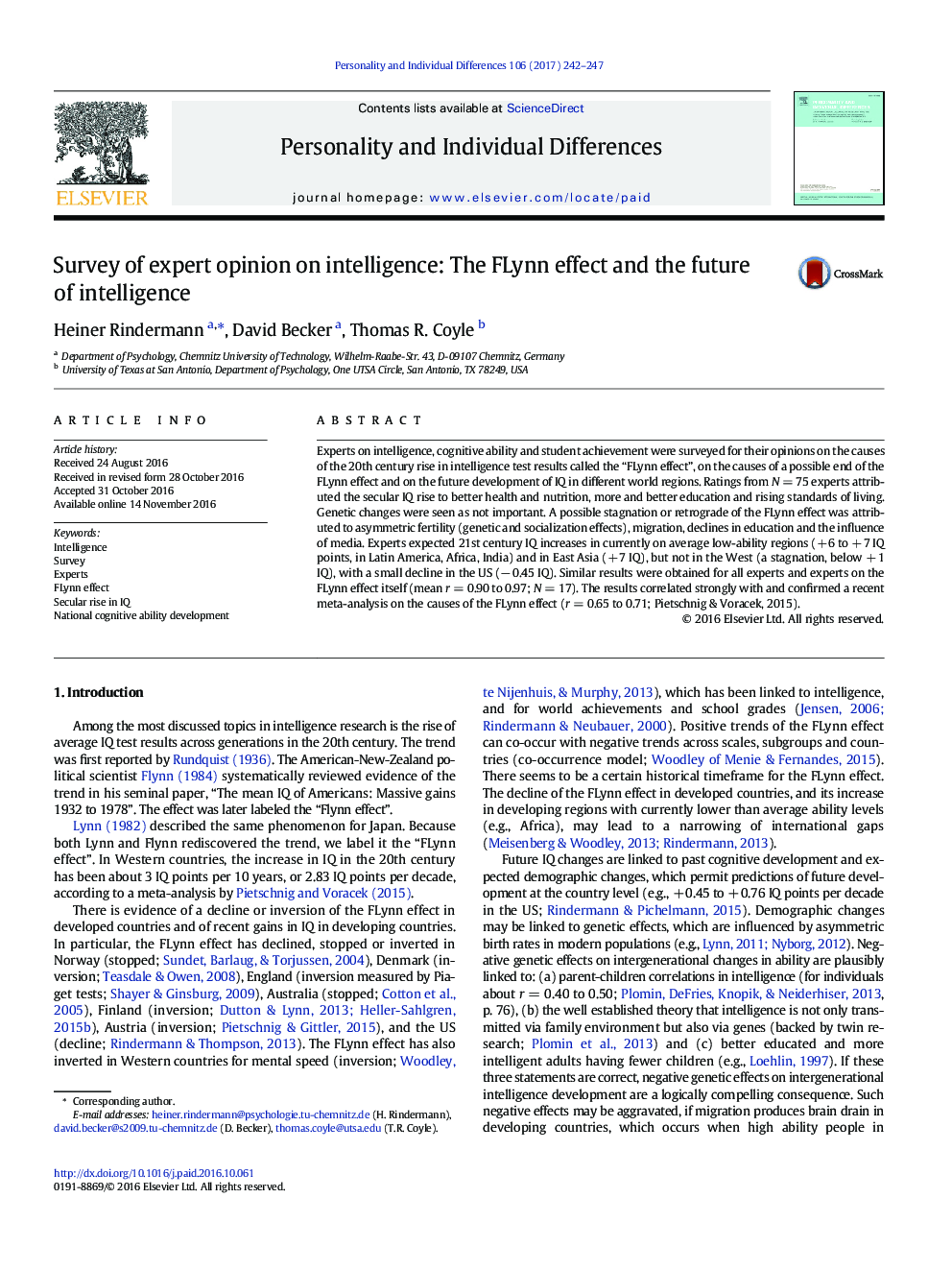| Article ID | Journal | Published Year | Pages | File Type |
|---|---|---|---|---|
| 5036209 | Personality and Individual Differences | 2017 | 6 Pages |
â¢Experts on intelligence research were asked about past and future IQ development.â¢FLynn effect was explained by better health, nutrition, education, living standard.â¢A possible FLynn effect end was explained by asymmetric fertility and migration.â¢For the 21st century, experts expect IQ increases in low-ability regions (+ 6 IQ).â¢For the West, experts expect a stagnation or a decline in IQ (US: â 0.45 IQ).
Experts on intelligence, cognitive ability and student achievement were surveyed for their opinions on the causes of the 20th century rise in intelligence test results called the “FLynn effect”, on the causes of a possible end of the FLynn effect and on the future development of IQ in different world regions. Ratings from N = 75 experts attributed the secular IQ rise to better health and nutrition, more and better education and rising standards of living. Genetic changes were seen as not important. A possible stagnation or retrograde of the FLynn effect was attributed to asymmetric fertility (genetic and socialization effects), migration, declines in education and the influence of media. Experts expected 21st century IQ increases in currently on average low-ability regions (+ 6 to + 7 IQ points, in Latin America, Africa, India) and in East Asia (+ 7 IQ), but not in the West (a stagnation, below + 1 IQ), with a small decline in the US (â 0.45 IQ). Similar results were obtained for all experts and experts on the FLynn effect itself (mean r = 0.90 to 0.97; N = 17). The results correlated strongly with and confirmed a recent meta-analysis on the causes of the FLynn effect (r = 0.65 to 0.71; Pietschnig & Voracek, 2015).
